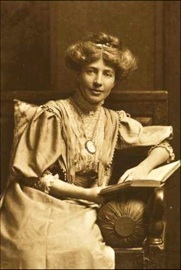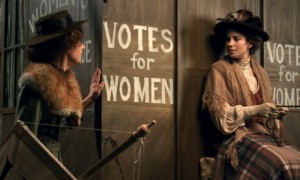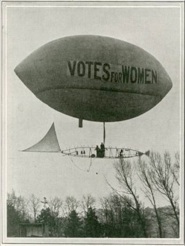Update: ABC television did a programme on Muriel Matters on Sunday: https://www.abc.net.au/tv/programs/muriel-matters/

This information comes directly from the Muriel Matters Society
Muriel Lilah Matters (November 12, 1877 – November 17, 1969) was an Australian born suffragist, lecturer, journalist, educator, actress and elocutionist.
Matters was an extremely prominent member of a critical mass of people agitating for women’s suffrage in London.
Matters is most recognised for chaining herself to the grille of the Ladies’ Gallery in the British House of Commons on 28 October 1908. The ‘grille’ was a piece of ironwork placed in the Ladies’ Gallery that obscured the women’s view of parliamentary debates. A symbol of the oppression of women in a male-dominated society, it was her firm conviction the grille should be removed.
Her non-violent solution to chain herself to the grille was the centre-piece of a larger protest conducted by the Women’s Freedom League. While attached to the grille Matters, by a legal technicality, was judged to be on the floor of Parliament and thus, the words spoken by her that day are still considered to be the first delivered by a woman in the House of Commons.
Matters is also identified with attempting to shower King Edward VII and the British Houses of Parliament with handbills dropped from an airship on 16 February 1909.
The South Australian Parliamentary Library Reading Room has been named in honour of Muriel Matters on 5 August 2014.

A docudrama Muriel Matters!, featuring the suffragette’s story, premiered at the Adelaide Film Festival on Sunday, 13 October, 2013 and screened on ABC1 .

Photo from The Guardian
For more information: https://www.facebook.com/murielmatterssociety
https://twitter.com/MurielMattersSA



